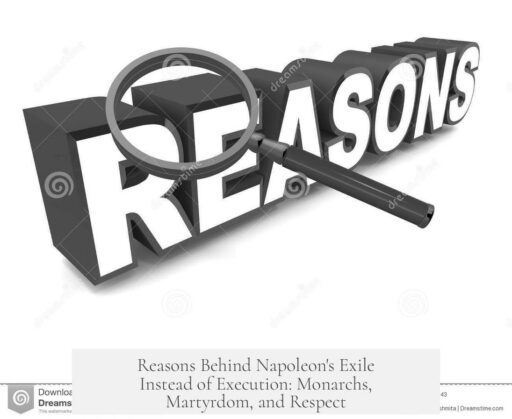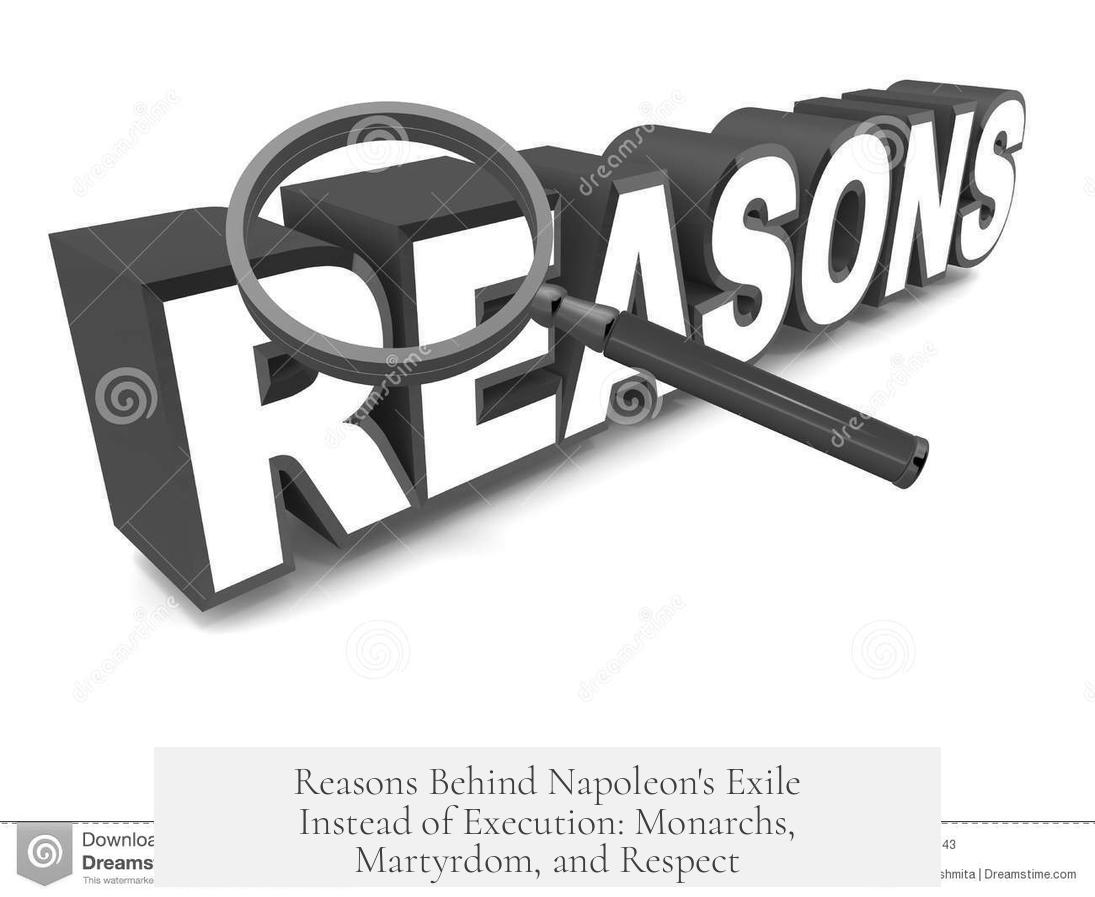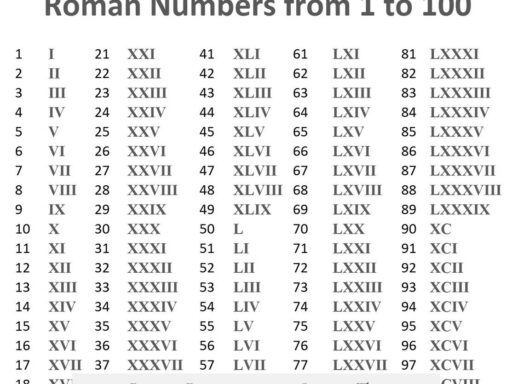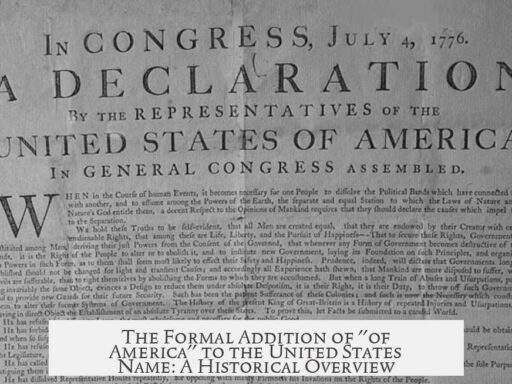Napoleon was exiled instead of executed mainly due to the political norms and sensitivities surrounding monarchs and high-ranking leaders in Europe at the time. Executing monarchs was widely taboo. Exile offered a way to neutralize powerful figures without causing political instability or martyrdom.
For centuries, exile served as a method to avoid complications from killing aristocrats. Execution could spark resistance movements or create martyrs who might inspire rebellion. Although Napoleon was not born noble, his coronation by the Pope gave him ambiguous status. Leaders viewed him as more than a rebel but less than a traditional monarch, complicating decisions about his fate.
The Congress of Vienna, responsible for reshaping Europe after Napoleon’s defeat, chose exile to prevent him from becoming a symbol of martyrdom. They understood that executing him could immortalize his revolutionary ideals in France. By exiling him first to Elba, then to Saint Helena, they removed him physically from power while avoiding glorifying his downfall.
This approach also reflected a recognition of meritocracy, as Napoleon had risen through talent rather than birthright. European powers treated him with a degree of respect due to his position. They avoided equating him with common insurgents, reinforcing the values he symbolized, while maintaining political order.
Such treatment was typical for high-ranking enemies, who were often spared harsher punishments that lower-ranked rebels faced. This mutual respect maintained a form of aristocratic code of conduct in warfare and politics at the time.
| Reason | Explanation |
|---|---|
| Taboo Against Executing Monarchs | Avoided political upheaval and martyrdom by sparing royalty from death. |
| Napoleon’s Ambiguous Status | Neither pure noble nor mere rebel, complicating his punishment. |
| Preventing Martyrdom | Exile prevented making Napoleon a revolutionary symbol in France. |
| Reaffirming Meritocracy | Respecting his rise by merit rather than birth justified leniency. |
| Mutual Respect | High-ranking enemies were typically spared execution. |
- Executing monarchs was politically risky and taboo in Europe.
- Napoleon’s elevated but complex status required special treatment.
- Exile avoided turning him into a revolutionary martyr.
- His rise by merit invited respect from European powers.
- High-ranking leaders often received different, softer punishments.
Why Was Napoleon Exiled and Not Executed?
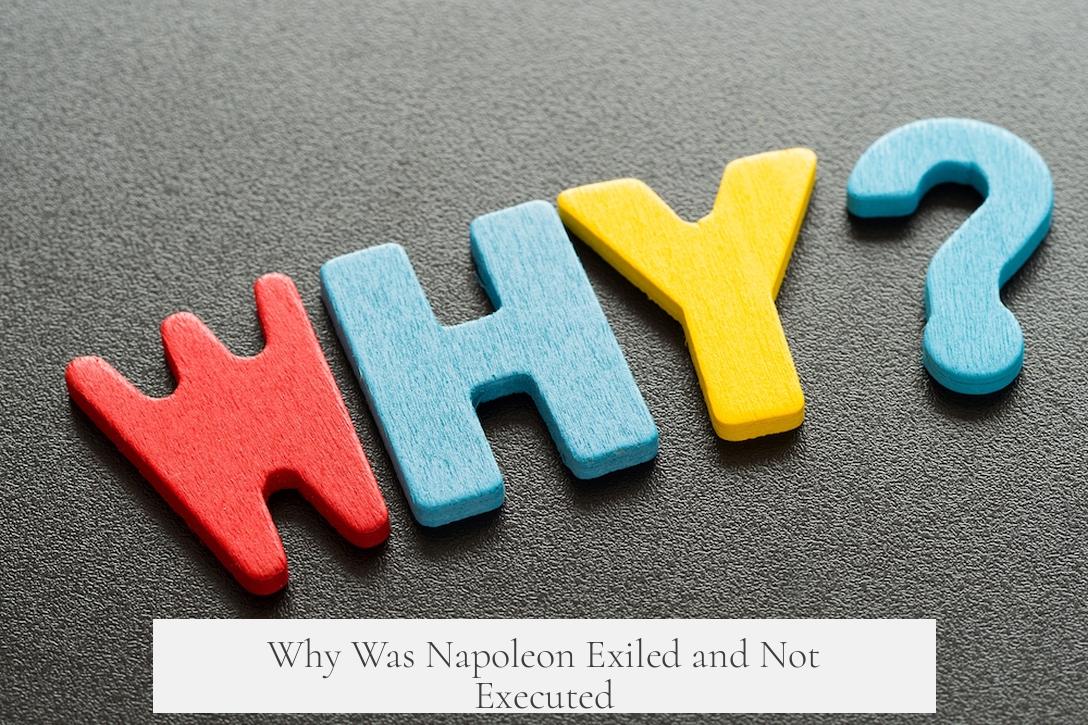
Napoleon was exiled instead of executed primarily because executing monarchs and high-ranking leaders was a political taboo that risked making martyrs and stirring unrest. It’s a story tangled with notions of power, respect, political strategy, and the fragile balance of post-revolution Europe. Let’s unravel why the man who crowned himself Emperor avoided the guillotine, despite having plenty of reasons to meet that fate.
Imagine the European powers sitting around a grand table at the Congress of Vienna in 1815. They just defeated the formidable Napoleon Bonaparte. The question on everyone’s lips: What now? Cut off his head or send him packing to a remote island? The decision wasn’t just about justice; it was about politics, symbolism, and future stability.
The Taboo Against Executing Monarchs
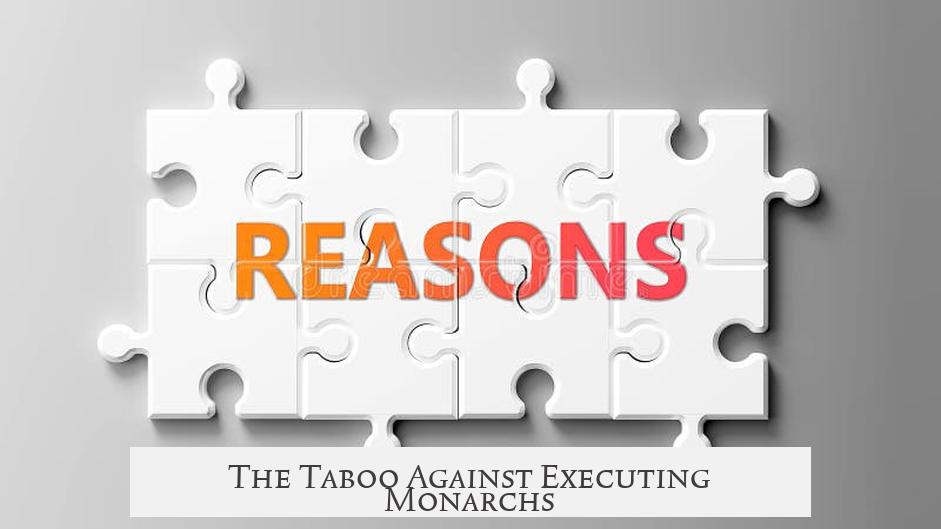
For centuries, exiling aristocrats was the go-to punishment instead of execution. Why? Killing a monarch or someone of noble or imperial status wasn’t just a crime; it was a political explosion waiting to happen. Execution risked turning the person into a martyr, rallying supporters and igniting revolts. Executions set dangerous precedents, suggesting that it’s okay to do the same to others high up in society.
Napoleon, in spite of being a revolutionary figure, was treated as a monarch. Exiling him avoided a bloody spectacle. This wasn’t just about mercy; it was about calculation. European elites didn’t want to spark a new wave of revolutionary fervor by brutally killing a man who still commanded massive respect.
Napoleon’s Ambiguous Status: Emperor or Usurper?
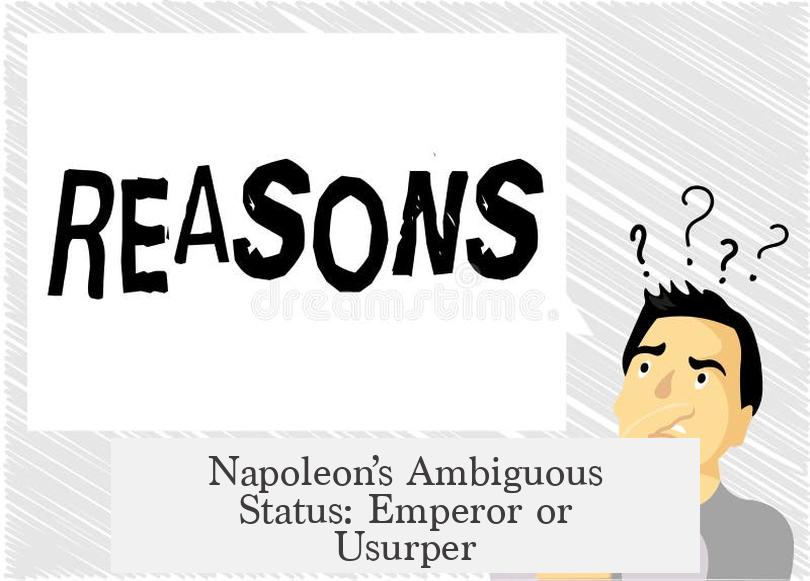
Here’s the twist: Napoleon’s status made his fate complicated. He wasn’t born a noble. Instead, he rose through military ranks, seizing power amid chaos. But he crowned himself Emperor in front of the Pope—that’s no small detail. To the world, and especially to monarchies, his title was both real and controversial.
Since he was an emperor by papal coronation, killing him outright could undermine the sacred aura of monarchy itself. Yet, because he wasn’t noble by blood, some argued he was just a rebel like any other—someone who could have been executed. The powers chose the middle ground: exile, recognizing his clout without setting a precedent that elevated him beyond reproach.
Avoiding Martyrdom to Protect France’s Stability

The Congress of Vienna wasn’t just about punishing Napoleon, but shaping the future of Europe. France, freshly scarred by revolution, was a tinderbox. Executing Napoleon risked making him a legendary martyr in the minds of revolutionaries and Bonapartists.
By exiling him, they deprived his followers of a rallying point. Instead of a bloody end, Napoleon was removed quietly to an island—Elba first, then Saint Helena. This ensured he didn’t just vanish but lingered as a symbol—one that reminded the French of their revolutionary spirit without encouraging violent rebellion.
In fact, Napoleon’s exile helped enshrine his legacy as a towering figure of revolutionary and imperial history. His image blended glory and caution—an eternal reminder of what passion and ambition could achieve, and what price they might pay.
Reaffirming Meritocracy through a Dignified Fate

Napoleon’s story wasn’t just about bloodlines, but about merit. He rose from a Corsican military officer to Emperor by sheer talent and tenacity. Despite European aristocrats’ wariness, they had to acknowledge this meritocracy.
By treating Napoleon with the dignity accorded to a ruler, even in exile, the powers tacitly admitted that merit could trump birthright. They didn’t crush him like a common rebel but preserved a status quo that fascinated and frustrated many: the rise of an outsider to emperor.
Mutual Respect Among High-Ranking Enemies

Now, this might sound odd to us today: there was a kind of gentleman’s agreement not to execute high-ranking enemies, no matter how fierce the battles had been. This “code” reflected a respect for position and status.
Napoleon wasn’t merely an enemy; he was the emperor of France, a high-ranking foe whose talents and ambition demanded respect—even by those who defeated him. This helped explain why he escaped the executioner’s blade but was sent to a remote island with dignity intact.
One could picture his captors thinking, “He fought hard, but heads rolling? No thanks.”
What Can We Learn From This?
Why else might exile have won over execution? Here are a few takeaways that make sense even today:
- Political Stability Matters: Choosing exile over execution avoided inflaming political tensions in a fragile era.
- Legacy Shapes the Future: The way power figures are treated colors how history remembers them, influencing future revolutions or reforms.
- Status and Merit Complicate Justice: Titles, coronations, and personal achievements often shield or expose leaders in different ways.
So next time you wonder why Napoleon wasn’t guillotined like so many others in the French Revolution, remember it’s a cocktail of respect, fear, politics, and the desire to avoid violent upheaval. Exile was the halfway house between justice and pragmatism.
In a world craving order after chaos, exile was the safety valve—the ultimate “please don’t start another war” move disguised as mercy. And wisdom too, perhaps.
Why was Napoleon exiled instead of executed despite his rebellious actions?
Executing monarchs was taboo. Exile was the preferred way to avoid political problems like creating martyrs or sparking resistance.
Did Napoleon’s non-noble birth affect the decision to exile him?
Napoleon was not noble by birth but crowned emperor by the Pope. This ambiguous status made his exile a way to respect his position.
How did exile prevent Napoleon from becoming a martyr?
The Congress of Vienna wanted to avoid glorifying him. Exile removed him without fueling revolutionary zeal or heroic legacy.
What message did exiling Napoleon send about merit and rank?
His treatment as a leader, not a common traitor, reaffirmed the merit-based rise to power in Europe.
Was there respect between high-ranking enemies like Napoleon and his opponents?
Yes, high-ranking foes were often spared execution out of respect, unlike lower-level rebels.
